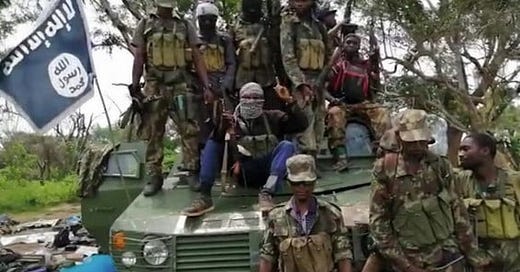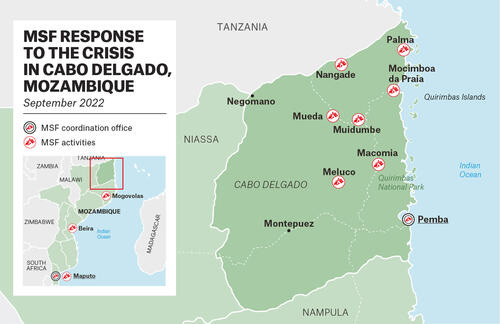Jasmine Opperman is a former military intelligence analysts, who compiles weekly and monthly Insights and Forecasts on Extremism and Political Violence in Southern Africa. I spoke to her on October 13 2022 on the evolving situation in Mozambique following our conversation last year.
While elements of the recent conflict can be traced back to the civil war between Renamo and Frelimo, Jasmine is of opinion that it is a too simplistic analysis. The North of Mozambique, a region known as Cabo Delgado has for historical reasons been underdeveloped and the social economic conditions allowed for extremists ideologies like Islamic State’s Narrative to take hold among the disgruntled youth.
Here is my understanding of the conflict from our conversation.
The internal conflict has been ongoing for more than 5 years.
The humanitarian crisis is of such a nature that estimates suggest that nearly 1 million people are internally displaced.
The Mozambican Government is in total denial of their inability to deal with the crisis and the underlying ethnic/religious component.
The weapons being used by the insurgency are of a local nature and there is thus far no indication of a state actor in supplying them.
Stories of torture and abuse by the Mozambican government in response to the Islamic Insurgency is routine, and the Maputo Government isn’t being transparent about the prison conditions in particular.
The Rwandan army recently got involved in the conflict and the local population seems to be trusting them more than the Maputo government.
The political violence has resulted in the collapse of local agriculture and fisheries, posing a major risk of famine and food insecurity to the region.
There is no coordination between all the foreign players involved, including US Green Berets that are operating on the ground.
The role of the Islamic State, if not contained will turn the region into an Iraq like situation. The domino effect can potentially spread to the wider region.
There is a direct communication from the Islamic State in Somalia and Mozambique, and if there is a political will, the intel community should be able to disrupt the messaging.
As is common with these conflicts, there is an energy investment that crosses through the ethnic and religious geopolitical fault lines. The LNG investment, the largest in the region’s history, is acting as a catalyst for existing disputes.
Even if the Islamic State is displaced by military action, the conflict will not be solved unless all the stakeholders, including the Maputo Government, works towards a Marshall Plan to bring social economic development for the region.
A disgruntled youth is the ripe playground to breed fanaticism.
If you like these type of conversations please consider subscribing or making a small donation,
Kind Regards
Hügo KRÜGER




